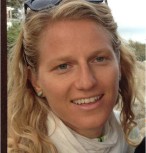DNA reveals the past and future of coral reefs
New DNA techniques are being used to understand how coral reacted to the end of the last ice age in order to better predict how they will cope with current changes to the climate. James Cook Univer

From 2005 to 2022, the main node of the ARC Centre of Excellence for Coral Reef Studies was headquartered at James Cook University in Townsville, Queensland (Australia)








Abstract: The oceans are becoming more acidic due to the uptake of additional carbon dioxide from the atmosphere. The impact of ocean acidification on the structure and function of coral reef systems will depend on the capacity for species to adapt to these changes. Recent studies show that the behaviour of reef fishes is impaired when exposed to projected future CO2 levels; however there is also considerable individual variation that might enable populations to adapt. We used a genome-wide approach to evaluate the heritability of this variation in sensitivity of the spiny damselfish, Acanthochromis polyacanthus. Offspring of CO2 tolerant and sensitive adult breeding pairs were reared at a near future level of CO2 (754 μatm) or kept at present control levels (414 μatm). By integrating 36 brain transcriptomes and proteomes and a de novo assembled genome of the offspring we investigate the molecular reaction to increased CO2 as well as the heritability of the molecular phenotype. The exposure to high CO2 resulted in a differential regulation of 173 and 62 genes to the control condition in the tolerant and sensitive group respectively. The main difference in the transcriptional program was observed in transcripts and proteins involved in the brain’s serine and glycine metabolism. Importantly, there is a clear signature of the parents’ sensitivity to high CO2 in the molecular phenotype of the offspring expressed by the differential regulation of genes controlling the circadian rhythm indicating adaptive potential through natural standing variation.
Bio: Celia was born in a landlocked place in the southwest of Germany but as soon as she could she moved close to the Sea. She did her undergraduate degree in Marine Biology at JCU. Early in her career she became interested in the field of Molecular Biology. This was reinforced by a Masters degree in Evolutionary Biology and a PhD in Genetics from the University of Barcelona. In her PhD she combined the marine and molecular to study fish population genetics and molecular signatures of social dominance and reproductive success. She now is a Post-doc in the Integrative Systems Biology Lab in KAUST (King Abdullah University of Science and Technology) where her main research focuses on the molecular response of organisms to changing environments through transcriptomic and epigenomic approaches.
New DNA techniques are being used to understand how coral reacted to the end of the last ice age in order to better predict how they will cope with current changes to the climate. James Cook Univer
A new study on the effects of climate change in five tropical countries has found fisheries are in more trouble than agriculture, and poor people are in the most danger. Distinguished Profess
James Cook University researchers have found brightly coloured fish are becoming increasingly rare as coral declines, with the phenomenon likely to get worse in the future. Christopher Hemingson, a
Researchers working with stakeholders in the Great Barrier Reef region have come up with ideas on how groups responsible for looking after the reef can operate more effectively when the next bleaching
Abstract: As marine species adapt to climate change, their heat tolerance will likely be under strong selection. Individual variation in heat tolerance and its heritability underpin the potential fo
Abstract: The Reef Ecology Lab in KAUST’s Red Sea Research Center explores many aspects of movement ecology of marine organisms, ranging from adult migrations to intergenerational larval dispersal
Abstract: Macroalgal meadows are a prominent, yet often maligned component of the tropical seascape. Our work at Ningaloo reef in WA demonstrate that canopy forming macroalgae provide habitat for ad
Abstract: Sharks are generally perceived as strong and fearsome animals. With fossils dating back at least 420 million years, sharks are not only majestic top predators but they also outlived dinosa
Abstract: Connectivity plays a vital role in many ecosystems through its effects on fundamental ecological and evolutionary processes. Its consequences for populations and metapopulations have been
Abstract: Evolution of many eukaryotic organisms is affected by interactions with microbes. Microbial symbioses can ultimately reflect host’s diet, habitat range, and even body shape. However, how
Abstract: The past few years have seen unprecedented coral bleaching and mortality on the Great Barrier Reef (GBR) but the consequences of this on biodiversity are not yet known. This talk will expl